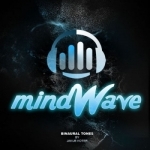
Yoga International
Health & Fitness and Magazines & Newspapers
App
Yoga classes & much more. Yoga International is your ultimate destination for yoga classes,...

Voot TV Shows Movies Cartoons
Entertainment
App
Voot is a mobile-first video on demand platform, part of Viacom18 Digital Ventures, the digital arm...

Blissful Birth by Glenn Harrold & Janey Lee Grace: Advice & Self-Hypnosis Relaxation
Health & Fitness and Education
App
Blissful Birth is the ultimate app to help you before, during and after giving birth. Having a...

StreamToMe
Photo & Video and Music
App
Use StreamToMe on your iPhone, iPod Touch or iPad to play *video*, *music* and *photo* files...

iTriage - Health, Doctor, and Symptoms search
Health & Fitness and Medical
App
iTriage is a free app that puts you at the center of your healthcare—anywhere, anytime. Search for...

Grokker: Yoga, Fitness, Mind
Health & Fitness and Lifestyle
App
With 1000s of fitness, yoga, meditation, and healthy cooking videos, Grokker makes it easy to find...

Lotus - Yoga and Fitness
Health & Fitness and Sports
App
Welcome to Lotus Yoga! Lotus has the LARGEST yoga library in App Store with 100+ Yoga workouts &...

Yoga with Gotta Joga - Hatha & Meditation Classes
Health & Fitness and Sports
App
Get closer to your true nature with Gotta Joga ! Our yoga programs are carefully planned for...

Mind Wave - Binaural white noise
Health & Fitness and Entertainment
App
Mindwave's potent binaural tones have been imitated since it's first week in the app store, but the...

iStreamTunes - Music & Video Streaming for iTunes
Music and Utilities
App
Stream your iTunes Music library to your iPhone or iPad from Windows over WiFi and 4G! Stream...